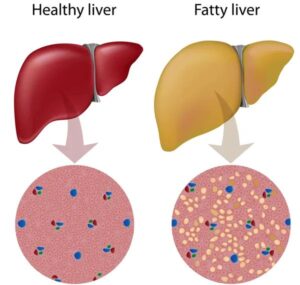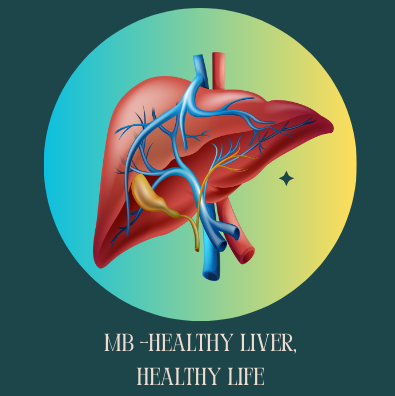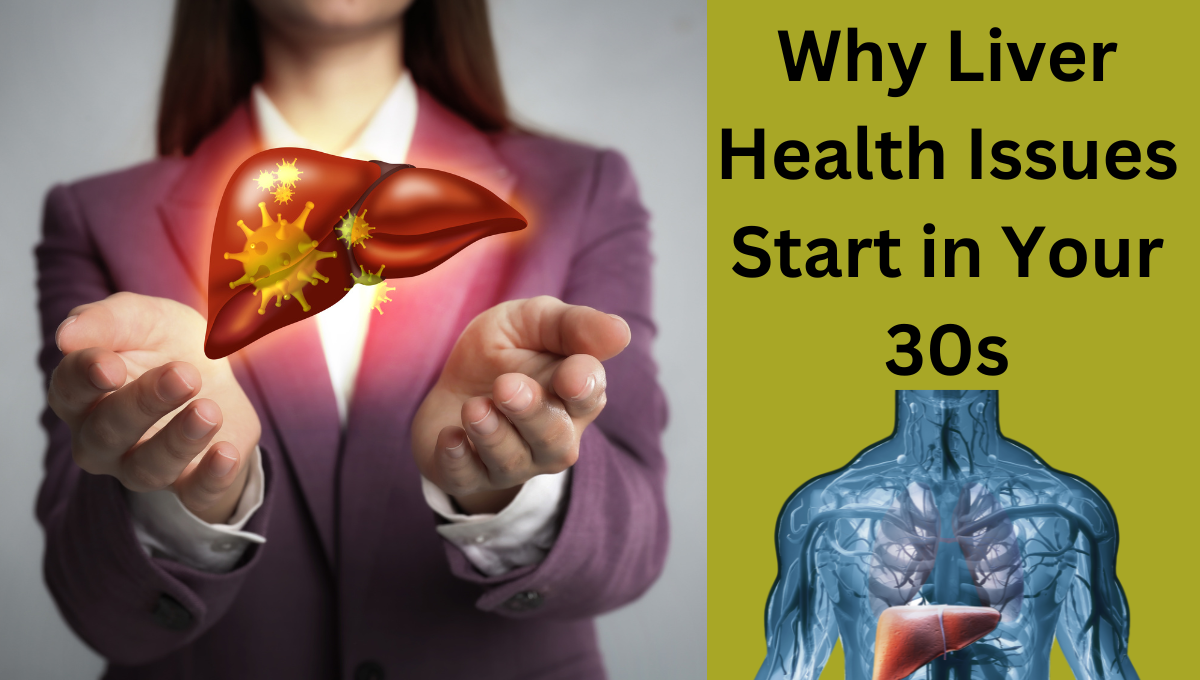Why Liver Health Issues Start in Your 30s
Overview
One of the body’s most important organs, the liver is in charge of metabolism, cleansing, and general health maintenance. Many people start having liver-related problems as early as their 30s, despite the liver’s persistent efforts to keep us healthy. However, what can be done to safeguard liver health at this point in life, and why does this occur?
This article will discuss common risk factors, the reasons why liver health problems frequently arise in the 30s, and helpful advice for maintaining good liver function.
Why Liver Health Is Critical in the Thirties

1. Combined Lifestyle Decisions
Your liver has been filtering toxins from food, beverages, and environmental pollutants for decades by the time you are in your 30s. Bad habits like eating poorly, drinking too much alcohol, and not exercising begin to wear them down. In your 30s, the long-term effects of these behaviors often become evident, even if they looked innocent in your 20s.
2. Decreased Rate of Metabolism
Our metabolism slows down with age, which can impact how well the liver breaks down sugars and fat. Non-alcoholic fatty liver disease (NAFLD), a condition where fat accumulates in the liver, may result from this.
3. A rise in stress levels
The thirties are frequently a period of familial obligations, financial strains, and professional advancement. Long-term stress might cause lifestyle changes that can put stress on the liver, such eating poorly, not exercising, or drinking more alcohol.
4. Hormonal Alterations
Liver function can be impacted by hormonal changes, especially in pregnant or perimenopausal women. These modifications may modify how fat is metabolized and increase the liver’s vulnerability to illness or inflammation.
5. Quiet Liver Disorders
Hepatitis and early-stage cirrhosis are two examples of liver illnesses that might go years without showing any symptoms. Unbeknownst to them, many people have liver problems that only show up or become serious by their 30s.
Typical Liver Health Problems in the Thirties
1. NAFLD, or non-alcoholic fatty liver disease
Even in those who do not consume excessive amounts of alcohol, NAFLD develops when fat builds up in the liver. The illness is becoming more prevalent in young adults, and poor diet and sedentary lifestyles are important contributing factors.
2. Liver Disease Associated with Alcohol (ARLD)
Liver damage by the 30s might result from regular alcohol use in the 20s. Mild fatty liver disease to more serious disorders like cirrhosis or alcoholic hepatitis are all possible outcomes of ARLD.
3. Hepatitis caused by viruses
Chronic liver inflammation can result from infections with hepatitis B and C. If left untreated, these infections can develop into more serious liver problems in early adulthood.
4. Imbalances in Liver Enzymes
Increased liver enzyme levels, which are frequently found in routine blood testing, can be a sign of liver stress brought on by bad lifestyle choices, drugs, or underlying medical disorders.
5. Problems with the Gallbladder and Bile Duct
As you age, gallstones and bile duct obstructions are more likely to occur and can impair liver function.
A diet heavy in processed foods is one factor contributing to liver problems in the 30s.
1. Diets heavy in processed foods, sweets, and bad fats can overburden the liver, causing inflammation and fat buildup.
2. Drinking Alcohol

Over time, even moderate but consistent drinking can cause liver stress. Acute liver injury can result from binge drinking, which is prevalent in social situations.
3. A Lifestyle of Sedentary Behavior
NAFLD risk is raised by obesity and metabolic syndrome, both of which are exacerbated by a lack of physical exercise.
4. Excessive Medication Use

Regular use of prescription medications or over-the-counter painkillers, such acetaminophen, can harm the liver if taken excessively or without the right medical care.
5. Toxins in the Environment
Daily exposure to poisons, chemicals, and pollutants can increase the burden of the liver and cause oxidative stress.
6. Family history and genetics
Despite adopting healthy behaviors, some people are more vulnerable to liver disorders due to a hereditary predisposition.
Indications That Your Liver May Be Having Problems
Although the first indications of liver issues can be subtle, it’s important to be aware of symptoms like:
Chronic exhaustion
Weight gain that cannot be explained or trouble decreasing weight
Discomfort or pain in the abdomen
Jaundice, or yellowing of the skin or eyes
Pale stools or dark urine
Abdominal or leg swelling
Skin irritation
Loss of appetite or nausea
It’s crucial to see a healthcare professional for an assessment if you encounter any of these symptoms.
Ways to Keep Your Liver Healthy in Your Thirties
1. Make Dietary Changes
Consume a lot of lean proteins, whole grains, fruits, and veggies.
Limit trans fats, sugary snacks, and processed foods.
Incorporate meals like citrus fruits, leafy greens, and garlic that promote liver health.
2. Reduce Your Alcohol Consumption
Observe the suggested limits for alcohol intake.
Make alcohol-free days a part of your schedule.
3.
Engage in Regular Exercise
Every week, try to get in at least 150 minutes of moderate aerobic exercise.
Strength exercise can also increase metabolism and aid in fat loss.
4. Drink plenty of water
Water consumption promotes liver function and aids in the removal of toxins.
5. Control Your Stress

Engage in stress-relieving practices like yoga, meditation, or deep breathing.
Put work-life balance first to prevent long-term stress.
6. Steer clear of superfluous medications
Take prescription drugs only as directed by a doctor.
Refrain from mixing drugs and alcohol.
7. Get Regular Exams
Liver enzyme abnormalities can be identified early with routine blood tests.
Talk to your doctor about routine testing if you have risk factors such as obesity or a family history of liver disease.
8. Get a Hepatitis Vaccine
In order to prevent infections in your liver, make sure you have had the hepatitis A and B vaccinations.
Towards the Future: The Liver’s Adaptability
The good news is that the liver can repair itself, making it an exceptionally resilient organ. Adopting a healthier lifestyle in your 30s can greatly improve liver function and prevent long-term issues, even if you have previously made poor choices.
In conclusion
Because of accumulated lifestyle choices, stress, and metabolic changes, liver health problems frequently start to manifest in the 30s. You can guarantee improved health for decades to come by being aware of the causes of liver issues and taking preventative measures to safeguard your liver.
 https://analytics.google.com/analytics/web/#/analysis/p405220706
Skip to content
https://analytics.google.com/analytics/web/#/analysis/p405220706
Skip to content 

1 thought on “Why Liver Health Issues Start in Your 30s”